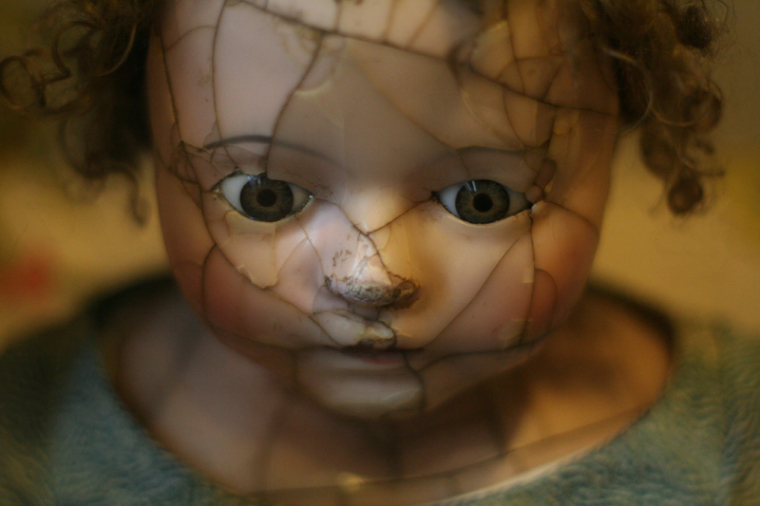
No tolerance for abuse
‘The church should be the leaders; instead, they are dragging their heels at the bottom of the road.’ These are the words of faith-based abuse survivor Gloria Ramsey to the New Zealand Royal Commission of Inquiry into Abuse in Care in December 2020.
Since August 2019, I’ve had a part-time role within The Salvation Army as part of its response to the Royal Commission’s investigations into abuse in State- and faith-based care between 1950-1999.
The Salvation Army used to run children’s homes in that period, and—to our shame—children were harmed while in our care. As a result, we have been one of the Christian organisations rightly under the Royal Commission’s microscope.
Other areas of focus for the inquiry have included church-run schools and abuse by clergy.
Although its terms of reference cover a set timeframe, the Royal Commission has a ‘looking forward’ remit as it prepares to make recommendations to improve the complaint response and redress experiences of survivors, and to strengthen the safeguarding policies and processes of organisations.
Commission and omission
Harrowing testimonies of abuse from faith-based survivors to the Royal Commission revealed acts of commission: predatory actions of individuals, but also equally disturbing systemic failures that enabled a culture of bullying, neglect and downright meanness.
There is clear indication that the Christian church in New Zealand was infected by the sin of racism. Māori children were far more likely to end up in care yet received little or no support from those working in such institutions to be proud of or nurture their cultural identity. Instead, they felt cut off from their whakapapa and even ashamed to be Māori. The same sense of cultural alienation was experienced by Pasifika children.
It is an indictment on the church that too many working within our institutions failed to see the image of God in children, reducing them to mere categories: ‘poor children’, ‘disruptive children’, ‘disabled children’, ‘children of bad parents’ … rather than seeing each as a precious child of God.
Failures of a different kind are evident today as churches struggle to varying degrees to respond appropriately to abuse complaints and to adequately provide redress for the suffering people experienced.
There were also acts of omission: where churches either did not look for signs of abuse, perhaps believing the dangerous fallacy that ‘such things would never happen in the church amongst Christian folk’, or—equally disturbing—knew something was not right yet failed to respond with urgency to protect the most vulnerable.
Regrettably, the empathy of churches seemed to sit more strongly with the abuser than their victim. Concerns about how an offender, their family, and the wider congregation might be impacted should the shame of someone’s offending come to light too often led denominations to deal privately with an offender. This minimised the pain and harm their actions had caused and did not deliver the justice victims deserved and which the Bible calls us to champion.
Siding with the offender to protect church interests is still a temptation today.
Resistance to safeguarding
Over the past almost 20 years, The Salvation Army—like many other denominations—has been on a journey to strengthen our safeguarding practices. This isn’t always an easy road to travel.
There is sometimes resistance from those who believe that because the church is a place of grace, we must always side with forgiveness. And who believe that requiring such things as criminal checks, behavioural contracts and management plans around known abusers must be resisted as counter to principles of biblical restoration.
However, when acts of criminal abuse occur, it is right that the workings of the criminal justice system take its course. The best interests of the vulnerable must always come first! We cannot grant an easy forgiveness without consequences, and neither can we be naive in our practices. This is why it is so important that we implement stringent policies to protect children and vulnerable people within churches.
Two passages of Scripture come to mind here. The first is those stark words of Jesus: “If anyone causes one of these little ones—those who believe in me—to stumble, it would be better for them to have a large millstone hung around their neck and to be drowned in the depths of the sea” (Matthew chapter 18, verse 6). This and plenty of other Bible teaching makes it clear that God’s bias is towards the protection of the vulnerable, and against the hypocrisy of religious pretenders.
The second, Matthew chapter 10, verse 16, says, “I am sending you out like sheep among wolves. Therefore be as shrewd as snakes and as innocent as doves.” When relating this text to child abuse in a church context, to me it means we are to be ‘innocent’—not blameworthy or responsible—never allowing a child or any other vulnerable person to be harmed by our actions or inactions. We are also to be ‘shrewd’—astute and discerning, with sharp powers of judgement—aware of the evil that exists in our world and proactively vigilant to guard against it.
Moving forward
What can we do to make a difference in this space as individuals, as congregational members, and even as leaders within our denominations?
Some basic principles drawn from the survivors and experts testifying at the Royal Commission:
1. Understand and acknowledge the deep and lasting harm caused by abuse, and the anxiety and fear experienced by survivors when they approach churches to report this. It can take decades before someone is able to talk about what has happened to them. When they do, it is important that churches respond without judgement and with the presumption that people are telling the truth. Survivors are often afraid they will not be believed when disclosing abuse, especially when it was committed by clergy. This can be especially true for Pasifika people because of deeply ingrained cultural values of respect for church leaders.
2. Recognise that when abuse occurs within churches or by those professing to be Christian, this represents an unacceptable violation of trust that causes significant spiritual harm. There is always a power imbalance whenever abuse by clergy or church leaders occurs in a church context, and consequently the defence of ‘consent’ by an offender is unacceptable.
3. Take responsibility for the church’s actions and inactions that failed to keep people safe. Never minimise or defend abuse. Seek to make amends through a sincere, compassionate and transparent process of response and redress. Ensure that misconduct by clergy includes a formal disciplinary process.
4. Learn from every instance of reported abuse. Seek to continuously improve safeguarding systems to prevent further harm.
Being a Salvation Army representative at this Royal Commission was confronting. I felt deep sorrow at the injustice of what each survivor had experienced. As a Christian, I also felt uncomfortably complicit in the sins committed by people aligned to my faith.
I find myself carrying an unshakeable sense of shame that the church has not been more empathetic in our response to those who have bravely come forward to tell us what has happened to them. Too often, we have disbelieved survivors. This has made it even harder for them to trust the church – and God.
Change the story
All of us, wherever we are within our individual churches, can help change this shameful narrative.
We can support our denomination’s efforts to safeguard children and other vulnerable people. If we feel our denomination is not doing enough to address the injustices of past abuse, we can lobby for a more empathetic and informed approach.
We can also seek to better understand and care for faith-based abuse survivors, doing what we can to replace their distorted picture of God fashioned when people of faith did not walk their talk. We can be part of revealing a more authentic and beautiful picture of a God who loves and protects, who weeps over abuse and its impact on people’s lives, and who longs to help survivors experience peace and even healing.

Christina Tyson has been a Salvation Army officer (minister) for almost 30 years.For 16 years she was involved in Salvation Army communications, and now works with her husband as pastors of a Salvation Army church and community centre in Newtown, Wellington.